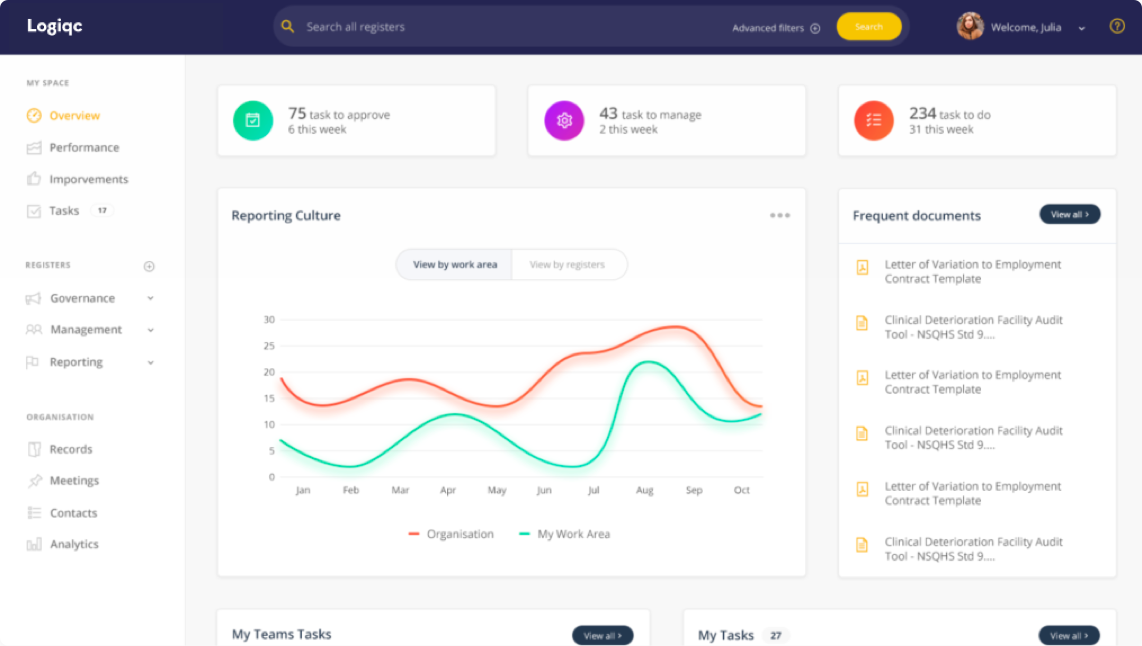Team culture can be defined as the collective values and behaviours that promote collaboration, motivation, and productivity within a team.
A robust and positive team culture is vital in healthcare organisations as it plays a pivotal role in ensuring client/patient well-being, safety, and optimal care.
Fostering a Positive Team Culture: Unlocking the Potential of QMS
A Quality Management System (QMS) encompasses the entire operating environment of an organisation and provides a comprehensive view of how the organisation’s systems, processes, and people manage safety, quality, and risk.
Effective management of safety, quality, and risk is crucial for healthcare organisations to succeed. It requires a robust team culture that fosters good communication, collaboration, accountability, decision-making, and a focus on continuous quality improvement.
The importance of having the right framework
An efficient quality management system provides a structured framework that promotes this type of teamwork and contributes to a positive team culture. It needs to be set up to continuously support the following key aspects of the organisation:
- Client/Patient Care and Safety:
A QMS includes mechanisms for reporting and addressing incidents or near-misses, promoting timely and open communication. This enhances accountability, conflict management and decision-making, yielding improved client/patient outcomes, safety and reduced errors. - Risk Management:
Having an effective QMS in place helps to identify potential risks and address them through a systematic risk management approach. This allows team members to make informed decisions that balance client/patient safety and quality of care. - Interdisciplinary Collaboration:
A QMS enables healthcare professionals from diverse disciplines to share information, collaborate and make well-informed decisions. - Regulatory Compliance:
Healthcare organisations must comply with numerous regulations and standards. A QMS provides a structured approach to compliance management, tracking and ensuring compliance and supporting decision-making that aligns with regulatory expectations. - Clear Documentation and Processes:
An effective QMS provides a structured framework for documenting processes, procedures, and responsibilities, which promotes accountability and efficiency. - Monitoring and Feedback:
Having a QMS in place involves regular monitoring and feedback mechanisms to assess compliance and identify areas for improvement. This fosters a culture of continuous learning and accountability within the team. - Standardisation of Practices:
It establishes clear standards and processes for quality and safety, which promotes consistency and a shared understanding of best practices among team members. - Continuity of Care:
A QMS creates a structured and supportive work environment with clear roles and responsibilities, strong communication, recognition, and continuous improvement. These factors contribute to higher job satisfaction, lower burnout rates, and increased employee retention.
Having the correct QMS in your organisation can help you achieve a positive team culture and deliver exceptional client/patient care. Get in touch with our team today to discover if LogiqcQMS is the right fit for your organisation.





